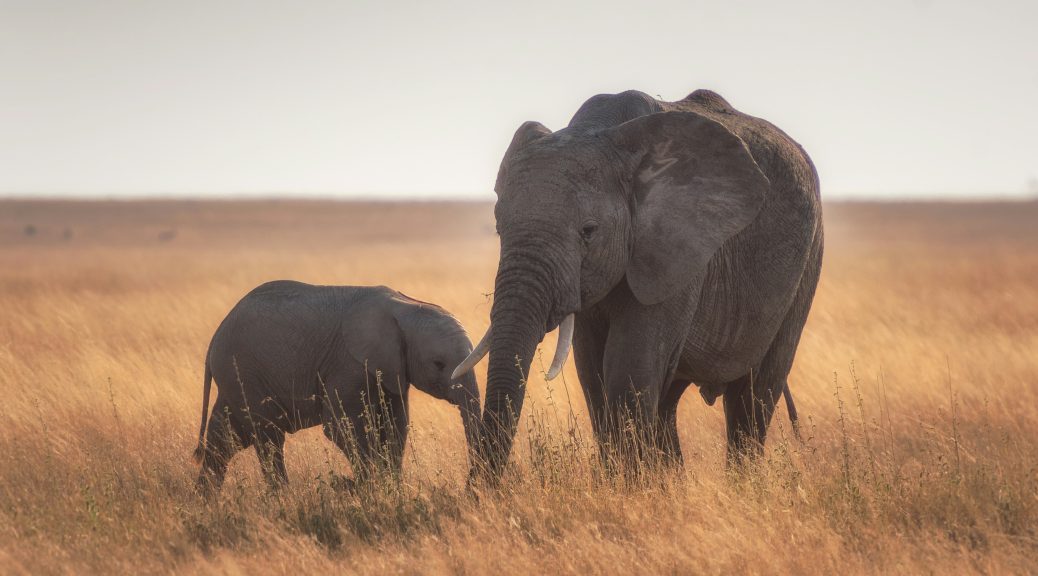
Remember Like An Elephant, Forget Like A Dog
English Audio Guide
Three minute read
“Onward and Upward! To Narnia and the North!” — C.S. Lewis, The Horse and His Boy
The past helps us grow. We can learn from it to avoid temptation and sin. We can learn from our mistakes and failings so as not to repeat them. The Greek philosophical maxim “Know thyself!” sums it up. The past contains knowledge so that we can learn and grow.
The past, however, can tempt us toward discouragement and despair, anger, and resentment. The past can tempt us to the extent that we hold onto words, actions, memories, and injuries. This character defect prevents us from doing what is necessary and important for the present moment. It can further turn into an occasion for sin.
The past is long gone, and it’s neither good nor bad. It’s what we do with it that matters. It’s human to fall into the past and dwell on the negativity. Holding onto the past too much? God’s creation suggests two practicalities to help us look ahead with hope. For He desires that we move forward and not fall backward. As C.S. Lewis once wrote to a woman afraid of dying, “There are better things ahead than any we leave behind.”
Remember like an elephant. It is common knowledge that elephants possess great memory. But their store of memory leads to their unity and survival, not destruction and death. One article suggests that their long-term memories help them remember geographic locations, water sources, and migration routes that can span vast distances. They even show the ability to remember each other after separation. They remember what’s most important.
Elephants teach us what is worth remembering. With the past, we can consciously dwell on what was true, good, and necessary. Saint Paul exhorts us: “Finally, brothers and sisters, whatever is true, whatever is honorable, whatever is just, whatever is pure, whatever is pleasing, whatever is commendable, if there is any excellence and if there is anything worthy of praise, think about these things” (Philippians 4:8).
We are deeply loved. In the chapter on accepting God’s will, Wilfrid Stinissen writes, “God was there… We remember his love that met us in everything, even in the most difficult moments” (Into Your Hands, Father, pages 42–43). Inevitably, we recall and focus on these difficult moments because of our broken emotional responses. If we remember the pain and sorrow for having caused evil, may it provide us with humility and repentance. These falls remind us that we are no better than other people, and we can begin again in love. If we remember the hurt someone has committed against us, let us grow in forgiveness and charity, recalling the Lord’s words, “Forgive, and you will be forgiven” (Luke 6:37). “To pardon an injustice received is to heal the wound in your own heart,” said St. Vincent de Paul.
Forget like a dog. Anyone who owns a dog knows the precious and unconditional love they have for their owner. It doesn’t matter what kind of day we had; they abound in joyful abundance to greet us with wagging tails and wet licks. They don’t hold onto grudges. They don’t remember when we scolded them five minutes ago for eating scraps off our table. They love quickly, and they love deeply. Strive to have a dog’s heart. We can pray a beautiful prayer such as this, “Lord, help me to love like my dog.”
Dogs have a short-term memory, as one article suggests, for only about two minutes. They teach us that forgetting is important. We can have a short-term outlook when it comes to hurtful memories so that we move on quickly from the bad stuff. Wounds can become infected if we poison them with grudges, anger, resentment, and hatred. Beginning again quickly helps us recover from a loss in charity.
The enemy is on the prowl. If we don’t consciously recall past wounds and hurt, the enemy will try to prod us. He fetches filthy junk from our basement and hurls it at our face as a tactic of despair and discouragement. We can acknowledge this attack and bring it right away to the foot of the Cross. The blood of Christ has redeemed us. We give it to Him, and we let it go. We can allow these negative thoughts and memories to pass by, and we can avoid acting on them (God only acts in peace). These painful memories can also be an opportunity to pray for ongoing healing. We can then forget, because if we’ve brought those sins to confession with a contrite heart, we can have peace. God forgets when he forgives.
Knowing what to do with the past can help us live in freedom. God’s creation is very good, and it teaches us these spiritual truths. When we’re thinking too much of the past and its negativity, forget it. If we remember anything, other than learning from it, may we dwell on what was true, good, and necessary. Let’s use the past to help us journey forward. And above all, we need God’s grace in our spiritual and emotional journeys. We can’t fix our miserable state ourselves, no matter how hard we try. It is up to the divine physician to heal us from our sins and injuries so that we can journey onward and upward.